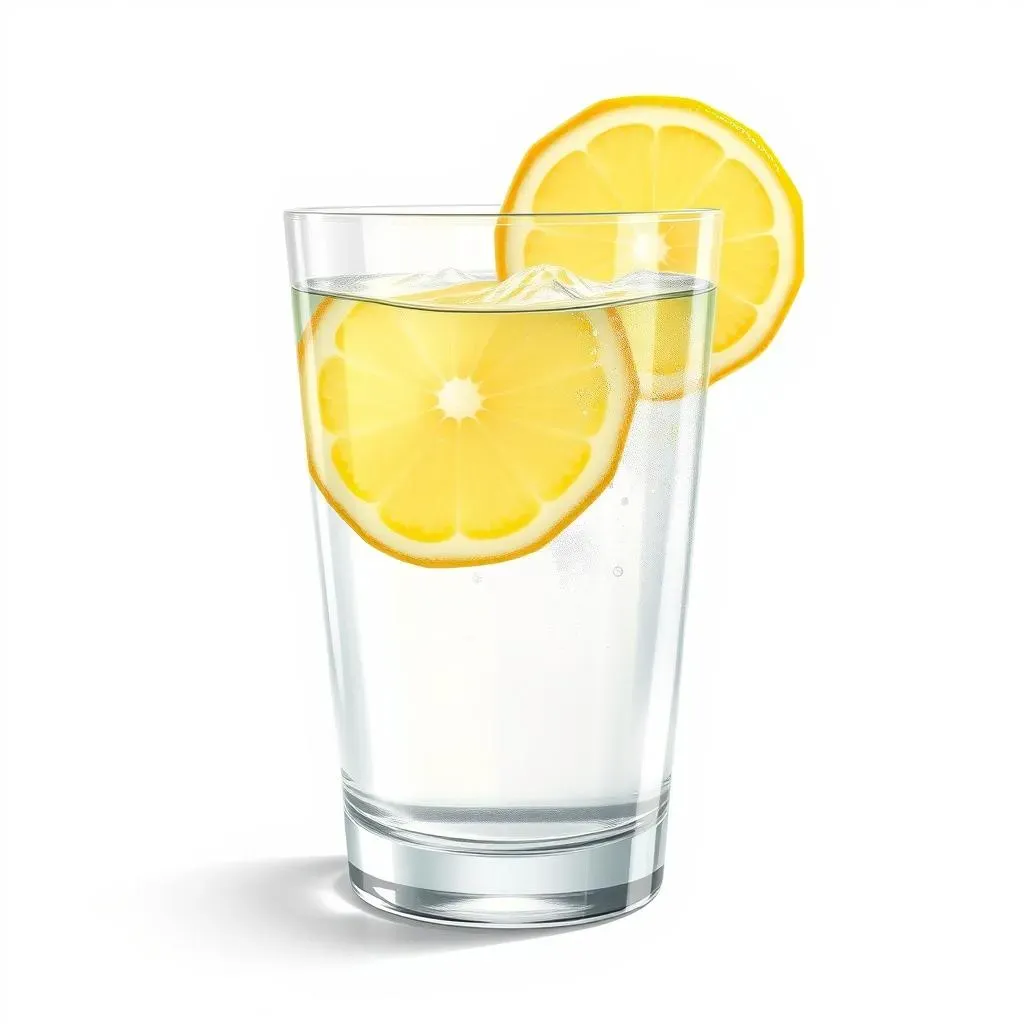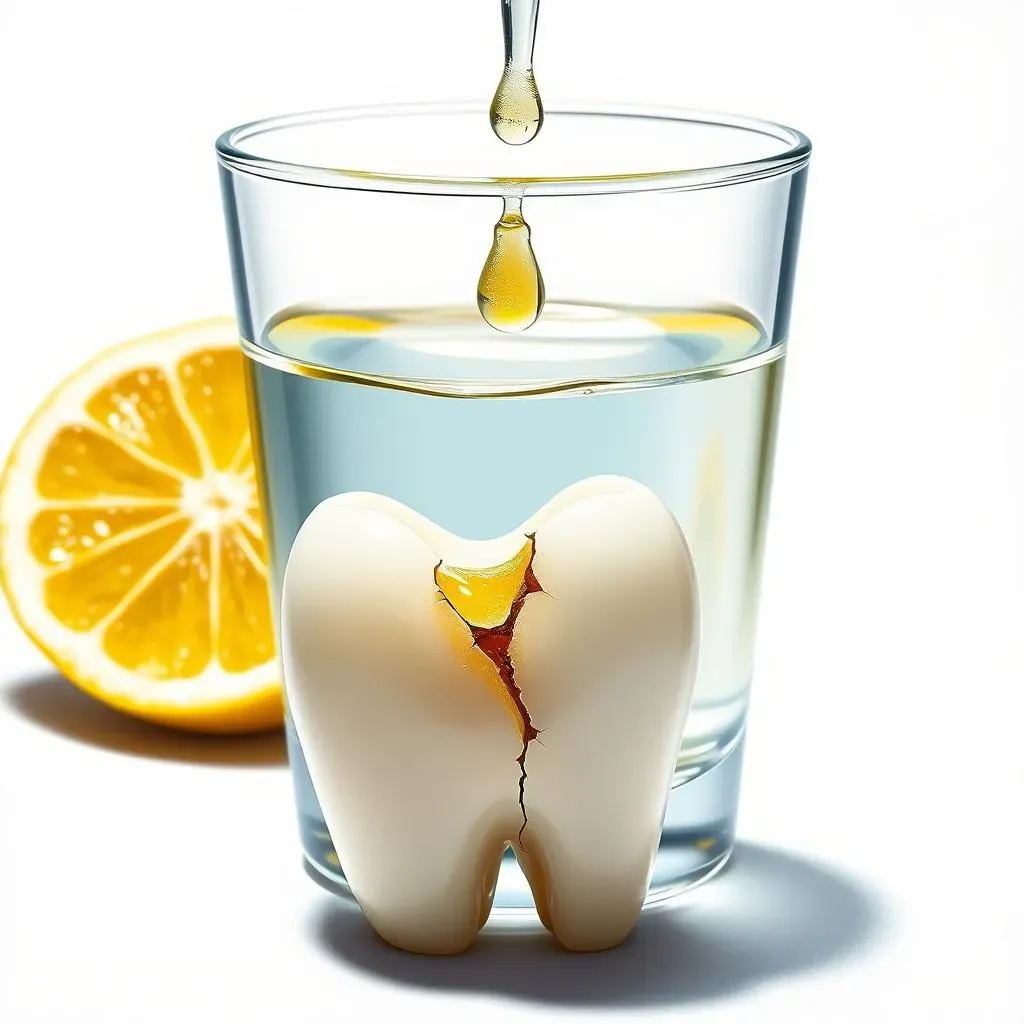Table of Contents
You've probably heard the buzz: lemon water is the magic potion for a "liver detox," promising everything from weight loss to glowing skin. But is there any truth to these claims, or is it just another health fad? We're here to cut through the noise and get to the core of what lemon juice can and can't do for your body. Forget the hype; we're diving into the science. We'll explore the real nutritional perks of lemon juice, like its vitamin C content, and how it might affect your blood sugar. We'll also tackle the big question: does lemon water actually perform a "liver detox," or is that just a myth? Finally, we will discuss the potential downsides of making lemon water your daily drink. So, if you're curious about the real deal behind the "liver detox lemon juice" trend, stick around. Let's separate fact from fiction.
The Lemon Juice Liver Detox Myth

The Lemon Juice Liver Detox Myth
The "Detox" Deception
Okay, so let's talk about this whole "liver detox" thing. The idea that lemon juice can magically flush out toxins from your liver is, well, a bit of a stretch. Your liver and kidneys are already incredible detox machines. They work tirelessly every single day to filter out waste and keep you healthy. They don't need a lemon juice boost to do their job. Thinking lemon water will suddenly make your liver work better is like believing a car wash will make your engine run faster, it just doesn't work that way.
When you hear people talking about detoxing with lemon juice, it's often tied to this idea of "cleansing" your body from built-up gunk. But our bodies aren't some sort of dirty pipe that needs a good flush, they are sophisticated systems. The truth is, if your liver is healthy, it's already doing its detox thing just fine. If it's not, a glass of lemon water isn’t going to cut it. You need real medical attention. So, the next time you see someone promoting a "liver detox" with lemon juice, take it with a grain of salt, or maybe a slice of lemon, and remember that real health is about consistent, healthy habits, not quick fixes.
What the Science Says
Let’s get real about the science. The studies that do exist on lemon juice and the liver are often done on mice, not humans, and with very high concentrations of lemon juice. Those findings don’t always translate to what happens when a human drinks a glass of lemon water. The idea that lemon juice can somehow "cleanse" your liver is not supported by any solid scientific evidence. What lemon juice does contain is Vitamin C, which is great for your immune system, but it’s not a liver-cleansing superhero.
So, why does this myth persist? I think it's because people love quick and easy solutions. The idea of drinking something simple and having it magically fix everything is super appealing. But health is a journey, not a destination, and there are no shortcuts. Instead of focusing on fad diets and "detoxes," it’s far more effective to focus on eating a balanced diet, staying active, and getting enough sleep. These are the real keys to a healthy liver and a healthy life.
Myth | Reality |
|---|---|
Lemon water detoxes the liver. | Your liver detoxes itself. |
Lemon juice is a "liver cleanse". | Lemon juice is a source of Vitamin C. |
Drinking lemon water will fix liver problems. | Liver problems require medical attention. |
Lemon Juice: Real Nutritional Benefits

Lemon Juice: Real Nutritional Benefits
The Vitamin C Powerhouse
Okay, so lemon juice might not be a liver-cleansing miracle, but it does have some real nutritional benefits. Let's talk about Vitamin C. Lemons are packed with it, and that's a good thing. Vitamin C is an essential nutrient, meaning your body can't make it on its own, so you need to get it from your diet. It's a powerful antioxidant, helping to protect your cells from damage, and it’s also vital for a healthy immune system. Think of it as your body's shield against those nasty colds and flu bugs. A squeeze of lemon in your water is a simple way to give your immune system a little boost. It's not a cure-all, but it's a great addition to your daily routine.
Beyond just fighting off sniffles, Vitamin C is also important for your skin, helping with collagen production, which keeps it looking young and healthy. It can also help your body absorb iron from plant-based foods, which is great news for vegetarians and vegans. So, while lemon juice might not magically detox your liver, it does bring some solid nutritional perks to the table. It’s not about some mythical cleanse, it's about real, tangible benefits that contribute to your overall health. It's like a tiny, tangy supercharge for your body.
Other Good Stuff in Lemons
While Vitamin C gets most of the spotlight, lemons have other beneficial compounds too. They contain small amounts of potassium, which is important for regulating blood pressure, and some folate, which is essential for cell growth. These nutrients aren't in huge amounts, but they add to the overall nutritional profile of lemon juice. It's like the supporting cast in a movie, not the main star, but they still play a vital role. Also, lemons contain these things called phytonutrients which are linked to some health benefits, such as reducing the risk of some diseases.
And let's not forget that the simple act of adding lemon to water can encourage you to drink more. Staying hydrated is crucial for all your bodily functions, from regulating temperature to transporting nutrients. If a little lemon makes plain water more appealing, then that's a win. It's all about making healthy habits easier to stick with. So, while we’re not saying lemon juice is a magic bullet, it certainly offers more than just a tangy flavor. It has real, science-backed benefits that can contribute to a healthier you.
Nutrient | Benefit |
|---|---|
Vitamin C | Boosts immune system, protects cells, promotes collagen production |
Potassium | Helps regulate blood pressure |
Folate | Supports cell growth |
Phytonutrients | Linked to disease risk reduction |
How Lemon Juice Affects Blood Sugar

How Lemon Juice Affects Blood Sugar
The Science of Lemon and Sugar
Alright, let's chat about how lemon juice interacts with your blood sugar. It's not as simple as "lemon juice lowers blood sugar," but there's some interesting science to it. When you eat carbohydrates, your body breaks them down into sugars, which then enter your bloodstream, causing your blood sugar to rise. Now, lemon juice, thanks to its acidity, can actually slow down this process a bit. It might not be a huge drop, but it's a subtle effect that can be beneficial, especially if you're trying to keep your blood sugar levels steady. Think of it like a speed bump on a highway; it doesn't stop the traffic, but it slows it down a touch.
The acidity in lemon juice seems to inhibit the enzymes in your mouth that break down starch. So, when you eat something starchy and drink lemon water with it, that starch takes a little longer to turn into sugar and enter your bloodstream. This means you might see a more gradual rise in blood sugar, rather than a sharp spike. It's not a cure for anything, but it’s a handy little trick that can help manage your sugar levels. It's like a little sidekick that helps your body handle sugar a bit better.
Real-Life Scenarios
Let's put this into a real-world context. Imagine you're having a meal with some rice or potatoes, both of which are high in starch. If you were to drink a glass of lemon water with that meal, the lemon juice might help slow down the rate at which the starch breaks down, leading to a more gradual rise in blood sugar. This can be particularly useful if you're someone who's sensitive to blood sugar spikes. It's not about magically negating the carbs, it's about making their impact a bit gentler on your system. It's like putting a dimmer switch on a bright light; it's still there, but not as intense.
Now, it's important to note that lemon juice is not a substitute for medical advice or medication. If you have diabetes or any other blood sugar concerns, it is really important that you work with your doctor to manage your health. But if you are someone who is simply looking to make small changes to your diet, lemon water might be a good addition to your routine. It is a simple, natural way to support your overall health. It's like a small adjustment that can make a big difference over time, like choosing to take the stairs instead of the elevator.
Factor | Effect on Blood Sugar |
|---|---|
Acidity of Lemon Juice | Slows down starch breakdown, leading to a gradual rise in blood sugar |
Timing of Lemon Water | Drinking lemon water with meals can be more effective |
Amount of Lemon Juice | Small amounts will have a minor effect |
Important Considerations
It's essential to keep in mind that the effect of lemon juice on blood sugar can vary from person to person. What works for one person might not work the same for another. Factors like your overall diet, your activity level, and your individual metabolism all play a role. Lemon juice is not a universal solution, but it’s one piece of the puzzle. It’s like a small tool in your toolkit; it’s useful in certain situations, but it's not the only tool you need. Also, adding a ton of sugar to your lemon water will definitely negate any potential blood sugar benefits, so keep it simple and unsweetened.
Also, while lemon juice can be helpful, it's not a magic bullet. If you're struggling with blood sugar management, it's crucial to consult with a healthcare professional. They can help you create a personalized plan that fits your specific needs. Don’t rely solely on lemon water to manage a complex health issue. Think of it as a helpful addition, not a replacement for professional advice. It’s like using a map for guidance, but still needing to know how to drive. It is just a little helper and not a solution.
Potential Harms of Drinking Lemon Water

Potential Harms of Drinking Lemon Water
The Acidic Truth
Okay, so we've talked about the good stuff, now let's get into the potential downsides of lemon water. The main culprit here is acidity. Lemons are super acidic, and while that's what gives them their tangy flavor, it can also cause problems for some people. The biggest concern is your tooth enamel. Think of your enamel like the protective shield on your teeth. When you sip acidic drinks like lemon water regularly, it can start to erode that shield, making your teeth more sensitive and prone to cavities. It's like leaving your car out in the rain without a cover; eventually, the elements will take their toll. This doesn't mean you need to ditch lemon water completely, but it's something to be mindful of.
Also, the acidity in lemon water can sometimes irritate your bladder, especially if you're prone to bladder issues. For some people, it can also trigger acid reflux or heartburn. It is like adding fuel to an already burning fire. It is important to listen to your body and pay attention to how it reacts to lemon water. If you notice any of these symptoms, it might be a good idea to cut back or skip it altogether. And remember, what works for one person might not work for another, so it's all about finding what's best for you. It is like trying on shoes; some fit perfectly, while others just don't work for your feet.
How to Mitigate the Risks
Now, before you swear off lemon water forever, there are ways to enjoy it without doing a number on your teeth. First off, don't sip on lemon water all day long. It's better to drink it in one go rather than having a constant stream of acid washing over your teeth. Use a straw to minimize contact with your teeth, and rinse your mouth with tap water after drinking it. This helps neutralize the acid. It's like putting a raincoat on after you've been caught in the rain, it helps to prevent further damage. Also, avoid brushing your teeth right after drinking lemon water, as this can make enamel erosion worse. Wait at least 30 minutes before brushing.
If you're noticing bladder irritation or acid reflux, try diluting your lemon water even more or switching to a less acidic citrus fruit, like lime. It’s all about finding that sweet spot where you enjoy the drink without feeling any discomfort. It’s like adjusting the volume on your music; you want to hear it, but not so loud that it hurts your ears. And remember, moderation is key. You don't need to drink gallons of lemon water to reap any potential benefits. A glass or two a day is usually enough to enjoy the flavor without overdoing the acidity. It's like adding a little spice to your food; a touch can be great, but too much can ruin the meal.
Potential Harm | Mitigation Strategy |
|---|---|
Tooth Enamel Erosion | Drink with a straw, rinse with water, avoid brushing immediately after |
Bladder Irritation | Dilute lemon water, reduce consumption |
Acid Reflux/Heartburn | Reduce consumption, switch to less acidic citrus |